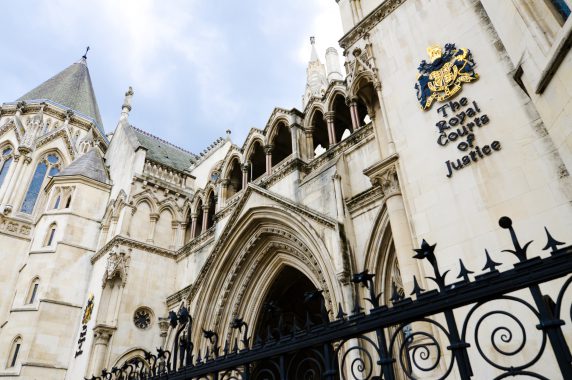Appeals court tells GMC to show ‘restraint’ as it quashes bid to sanction doctor

The Court of Appeal has quashed another High Court ruling in favour of the GMC seeking stricter sanctions for a doctor following a fitness-to-practise tribunal.
Handing down the judgment, the judge further suggested the GMC should exercise more ‘restraint’ when seeking to strengthen sanctions via the courts.
Although the Government has said it will remove the GMC’s right to bring Medical Practitioner Tribunal Service (MPTS) decisions to the High Court to be overturned, the GMC has said it intends to continue doing so until legislation is changed.
Today’s case, which follows the Court of Appeal’s high-profile ruling to reinstate struck-off junior doctor Hadiza Bawa-Garba last month, focused on paediatric locum Dr Hemmay Raychaudhuri.
Dr Raychaudhuri was found to have completed a medical examination form for a five-month-old baby without having performed an exam, while working in the A&E at Royal Berkshire Hospital in 2014.
The MPTS initially found that his actions ‘were not such that public confidence in the profession would be undermined’ if his fitness to practise was not found to be impaired and therefore decided to only impose a warning.
But the GMC said the MPTS ‘should have found that the appellant’s fitness to practise was impaired’ and successfully overruled the decision in the High Court, with the judge referring the case back to the MPTS to consider ‘the appropriate sanction’.
According to the Medical Act, if a doctor’s fitness to practice is found to be impaired, doctors can face suspension or erasure from the medical register.
But appeal judges quashed the High Court ruling today, expressing ‘regret that it was brought’.
Lord Justice Bean said in the judgment that the MPTS ‘were well placed to make an evaluative judgment of the nuances of how the various individuals had interacted and that judgment should have been accorded great weight, not only by the court but by the GMC in deciding whether to bring an appeal at all’.
He added: ‘The discretion given by section 40A(3) to appeal against any decision which the GMC consider not sufficient for the protection of the public is a wide one, but in my view it is a discretion to be exercised with restraint where it involves a challenge to a finding of fact in the practitioner’s favour.’
Former health secretary Jeremy Hunt announced in June that the GMC would be stripped of its right to appeal fitness-to-practice decisions, following the Government’s ‘rapid review’ into medical gross negligence manslaughter.
But the GMC later confirmed to Pulse that it is not intending to halt appeals against its own fitness-to-practise tribunal until the law is changed.
And Pulse revealed in March that 23 GMC appeals brought to date had all sought stricter sanctions, or to block a doctor from being registered to practise in the UK, while no appeal was for more lenient treatment.
Medical Defence Union head of advisory services Dr Caroline Fryar said: ‘Doctors are profoundly affected by fitness-to-practise proceedings and, understandably, considerably relieved to learn the tribunal has made a finding in their favour.
‘Most doctors don’t understand they are still in peril of having this finding appealed and many think this is unfair. This case addressed an important point of principle… and we are pleased the appeal was successful.’
A GMC spokesperson said: ‘We accept the judgment of the Court of Appeal and welcome the clarification that the High Court did have jurisdiction to hear our appeal.
‘We will reflect on the decision and the judges’ full comments, as we do in all cases.’













